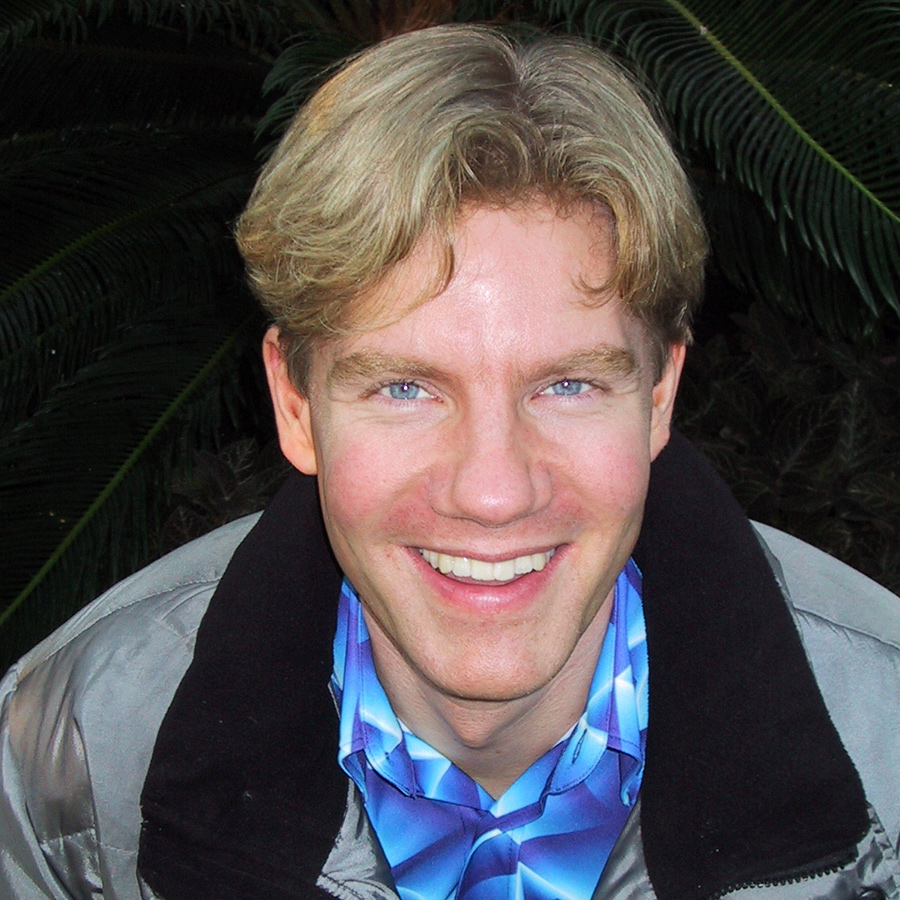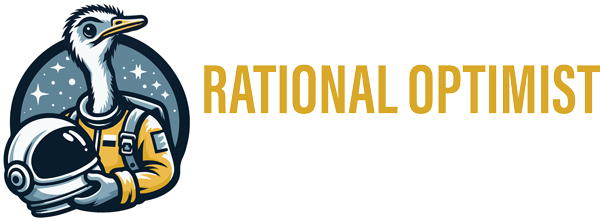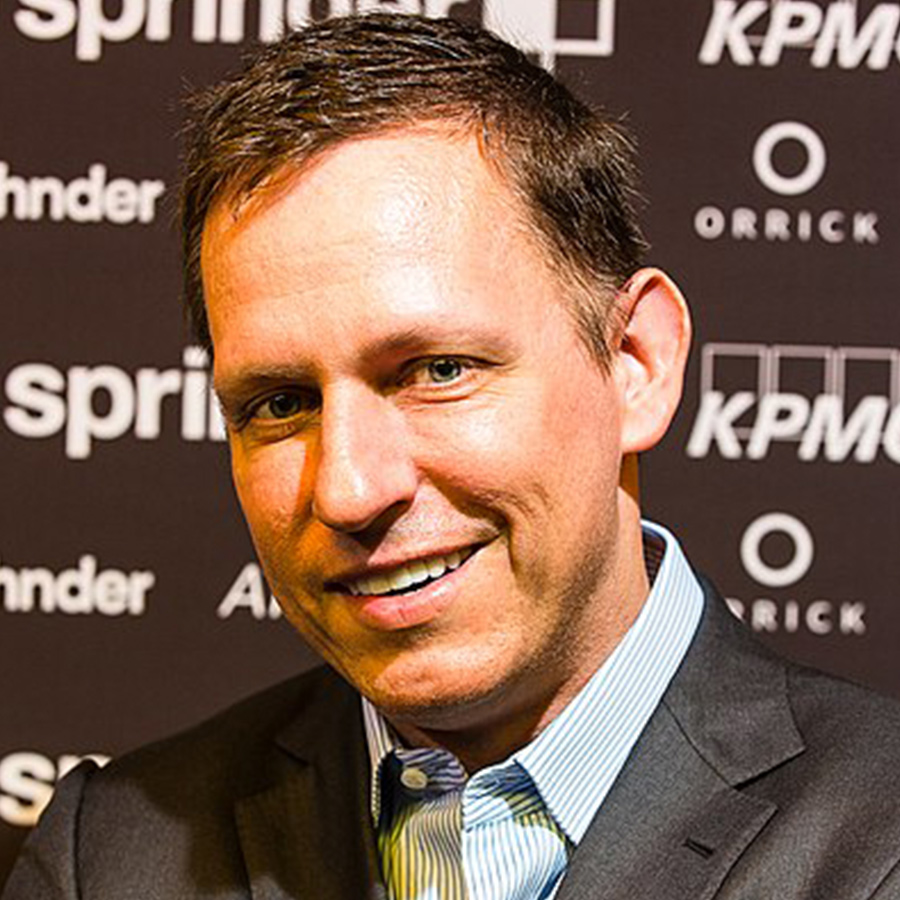
Honorees
Here we celebrate the remarkable optimists leading the charge toward a steadily improving world

Matt Ridley
"I am certainly not saying, 'Don't worry, be happy.' Rather, I'm saying, 'Don't despair, be ambitious.'"
Matt Ridley wrote the book on rational optimism. With more than 1 million copies sold, The Rational Optimist shows that a better world is not only possible, but probable, as long as we celebrate and prioritize what’s brought us this far: freedom, innovation, science, and reason.
The Rational Optimists' key insight is that it makes sense to be optimistic because people have a superpower called innovation. When they are free to work, trade, and share ideas together, they'll achieve incredible economic and technological growth, lifting up the living standards of all.
Matt has done more to refute irrational fearmongering and nurture hope than any scientist alive today. His work is not just persuasive and scientifically grounded, it's disarming and humble. Critics often attack Matt by twisting his assertions, accusing him of expecting a pollyannish, perfect future. As he'll politely point out, he's simply following the data to its logical conclusion. Matt often cites historian Thomas Babington Macaulay, who observed back in 1835:
"On what principle is it that with nothing but improvement behind us, we are to expect nothing but deterioration before us?"
In addition to his groundbreaking book The Rational Optimist, Matt has contributed profound insights that further our understanding of science, economics, and innovation. He's a beacon of rational hope for the future.
Matt has written 10 books. His latest is Viral: The Search for the Origin of COVID-19. Buy it here.
Hans Rosling
"I'm not an optimist. That makes me sound naive. I'm a very serious ‘possibilist.’ That's something I made up. It means someone who neither hopes without reason, nor fears without reason, someone who constantly resists the overdramatic worldview. As a possibilist, I see all this progress, and it fills me with conviction and hope that further progress is possible. This is not optimistic. It is having a clear and reasonable idea about how things are."
If Matt Ridley is the father of rational optimism, Hans Rosling is its grandfather.
Rosling was a renowned Swedish doctor and statistician known for his passion and zeal. He realized that people overwhelmingly believe the world is much worse than it is, and grossly underestimate the progress mankind has made. For example, most people believe extreme poverty is rising when it has, in fact, declined to all-time lows.
Realizing that “conventional wisdom” often contradicts established facts, Rosling set out to change minds. He used engaging presentations with a masterful understanding of statistics to demonstrate how far humanity has come in eradicating poverty, hunger, disease, and illiteracy.
Even though he was in the delicate business of telling people they were wrong, his audiences loved him because he did it with humility and humor. Rosling was a regular at TED Talks and on BBC documentaries. His most popular TED Talk, viewed over 15 million times, showed that there’s no longer such a thing as the “developing world,” because great strides have been made to eliminate extreme poverty worldwide.
Rosling didn’t like being called an optimist, and his message was never “all is well.” Instead, he wanted us to appreciate how far we’ve come and use that knowledge as motivation to keep working toward a better future.
Rosling’s book Factfulness, co-authored with his son and daughter-in-law, is a must-read for any rational optimist. Buy Factfulness here.
Rosling also co-founded the Gapminder Foundation to promote a fact-based understanding of how far we’ve come and how far we still have to go.
Elon Musk
“If the rules are such that you can’t make progress, then you have to fight the rules.”
“To anyone I’ve offended, I just want to say: I reinvented electric cars and I’m sending people to Mars on a rocket ship. Did you think I would be a chill, normal dude?”

Elon Musk is a visionary entrepreneur and CEO of SpaceX and Tesla. He’s pioneered groundbreaking advancements in space exploration, electric vehicles, and energy, inspiring global innovation and leading the charge toward a brighter future.
Elon may be the best solver of BIG problems in history. While the 2000s have seen rapid innovation, most breakthroughs happened in digital technologies. Musk stepped up to tackle real-world physical problems that were too hard and too expensive for anyone else. He figured out how to build electric cars at scale, make reusable rockets, and deliver reliable internet through a global network of satellites.
Musk has had a hand in too many billion-dollar success stories to count. He was an early CEO of PayPal. He co-founded and funded OpenAI, the creator of ChatGPT. And he acquired Twitter, liberating it from insidious government censorship.
Musk achieved all this despite being openly opposed by the corporate media for daring to speak his true thoughts. His drive and motivation are legendary, and he’s an unapologetic champion of the continued progress of humanity.
Bjorn Lomborg
“When thinking about the future, it is fashionable to be pessimistic. Yet the evidence unequivocally belies such pessimism. Over the past centuries, humanity's lot has improved dramatically—in the developed world, where it is rather obvious, but also in the developing world, where life expectancy has more than doubled in the past 100 years.”

Bjorn Lomborg is a Danish author, academic, and voice of reason known for his data-driven approach to identifying and solving big problems. His work often emphasizes human resilience and innovation, showing we can overcome almost any challenge when we have our priorities straight.
Lomborg is a “rational environmentalist.” He advocates that we make climate decisions based on scientific evidence and rational cost-benefit analysis rather than fear or ideological motivations. His transparent and clear analysis earned him many accolades in the early 2000s. Time magazine named him one of the 100 most influential people of 2004, and Esquire named him one of the 75 most influential people of the 21st century.
More recently, as climate hysteria has taken over, Lomborg has been shunned for his unwillingness to self-censor and his willingness to call out fabricated data. For example, he famously showed that climate-related deaths have plunged more than 97%—a shock to those who’ve been misled by manipulated data to believe climate deaths are rising.
While Lomborg acknowledges that climate change will present challenges, he emphasizes that it’s not our only challenge, nor is it our most urgent. He insists it does no good to fearmonger or exaggerate the problem. Most of all, he opposes anti-growth policies that would impoverish the most vulnerable right now in exchange for an uncertain benefit far in the future.
Lomborg is the founder of the think tank Copenhagen Consensus Center. His latest book is False Alarm: How Climate Change Panic Costs Us Trillions, Hurts the Poor, and Fails to Fix the Planet. Buy it here.

Join the Rational Optimist Society to receive our weekly members-only emails
Breakthrough news and upbeat insights from the home of rational optimism.
Peter Thiel
“We aren’t stuck with the things we have now. We can make new things, better things. And it doesn’t take many people to do it.”
“The most valuable businesses of coming decades will be built by entrepreneurs who seek to empower people rather than try to make them obsolete.”
Peter Thiel is a visionary entrepreneur, venture capitalist, and disruptor of the status quo. His pioneer spirit and unapologetic pushing of boundaries have inspired a whole generation of young entrepreneurs to build the future they want.
Thiel co-founded PayPal and Palantir and was the first outside investor in Facebook. In his bestseller Zero to One, he emphasizes the importance of taking big risks and moonshots to push forward human progress.
Thiel believes America needs to get back to the “definite optimism” that made the country great until the 1960s. Definite optimists are ambitious, gritty, and believe the future can be great because they’re going to make it happen. On the other hand, “indefinite optimists” are naïve, with a vague feeling things will be good but no understanding of how or why.
Thiel states, “From the 17th century through the 1950s and ‘60s, definite optimists led the Western world. Scientists, engineers, doctors, and businessmen made the world richer, healthier, and more long-lived than previously imaginable.”
Thiel is a vocal critic of the government stifling innovation, ideologies that threaten meritocracy, and the perverse incentives in US higher education. He founded the Thiel Fellowship, an innovative program that pays smart and motivated high-school grads to forgo college and instead build companies. Although only 20 students get accepted a year, Thiel fellows have already created 11 companies worth $1 billion or more.


